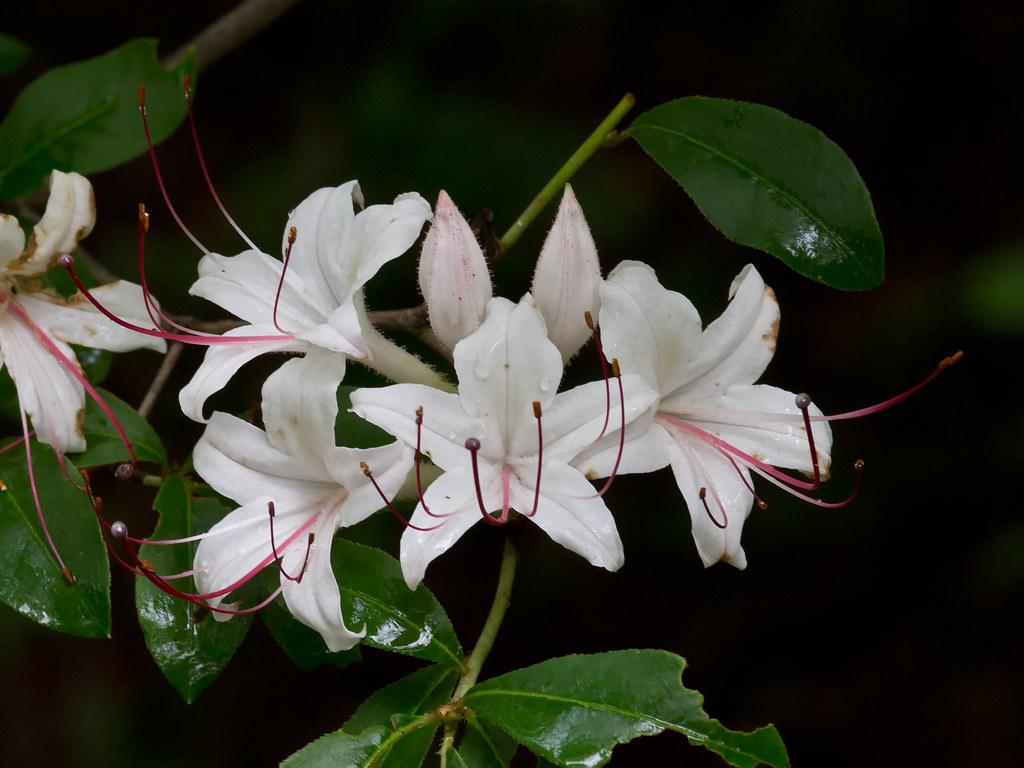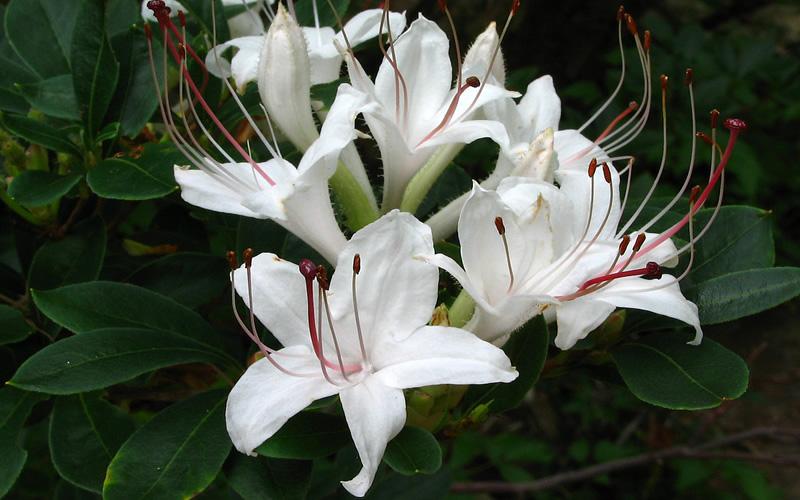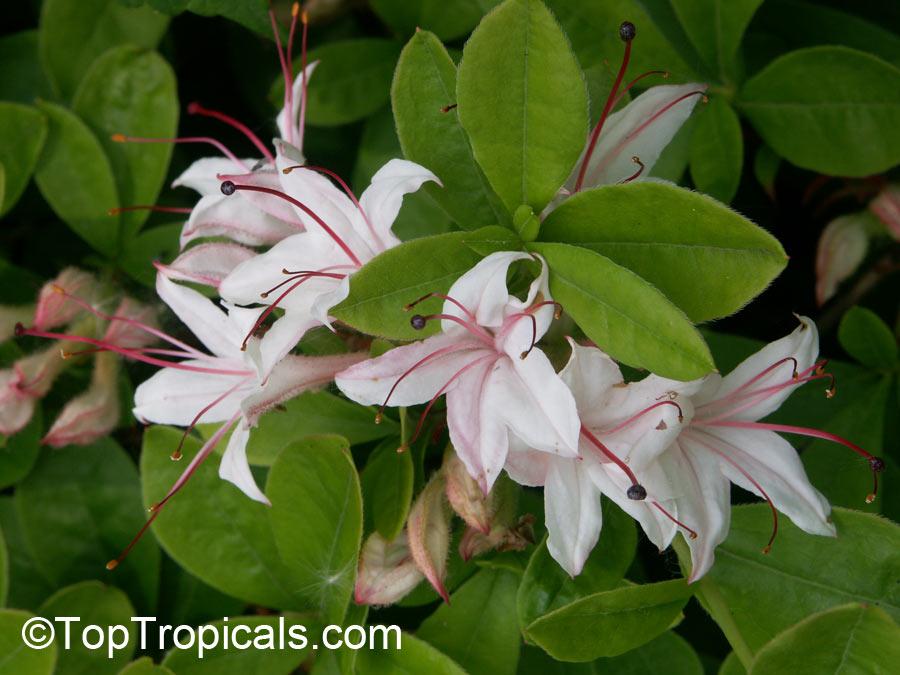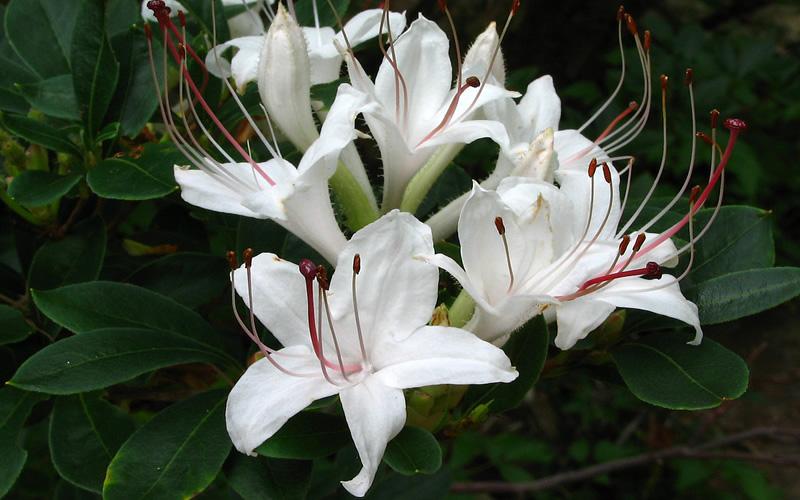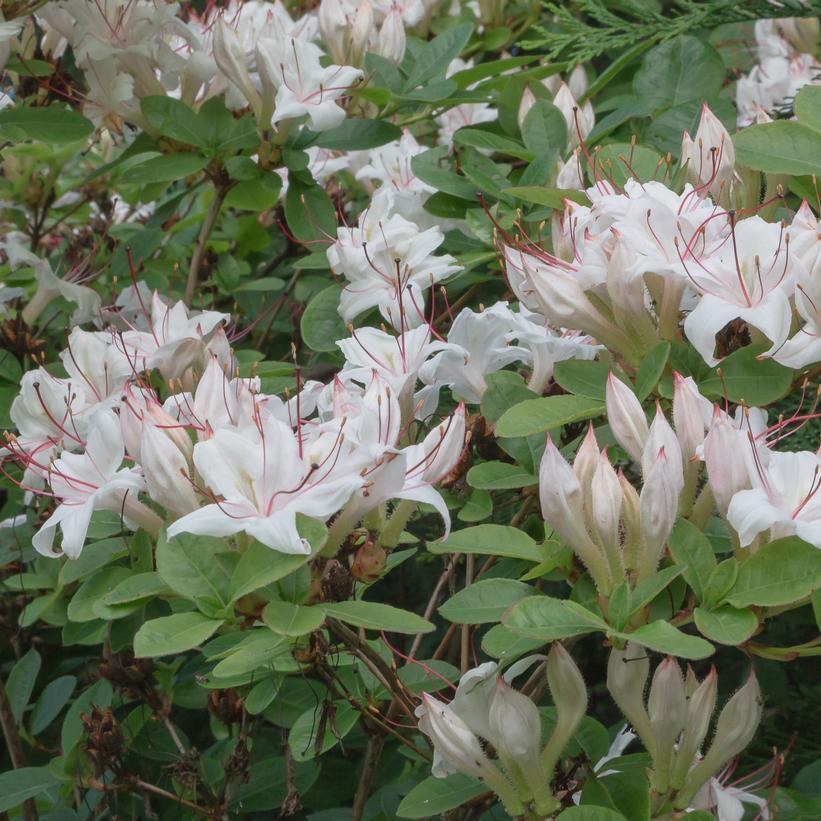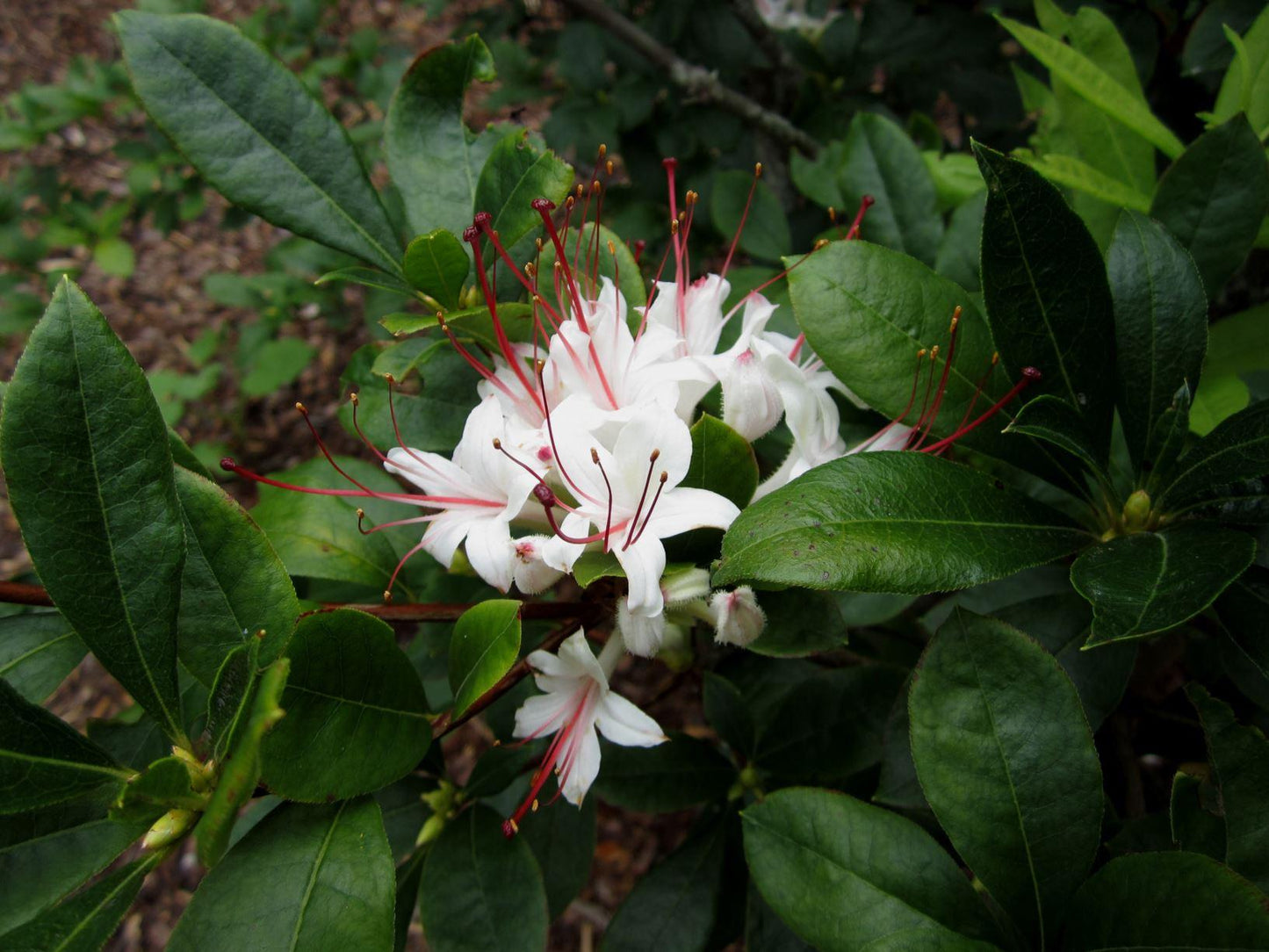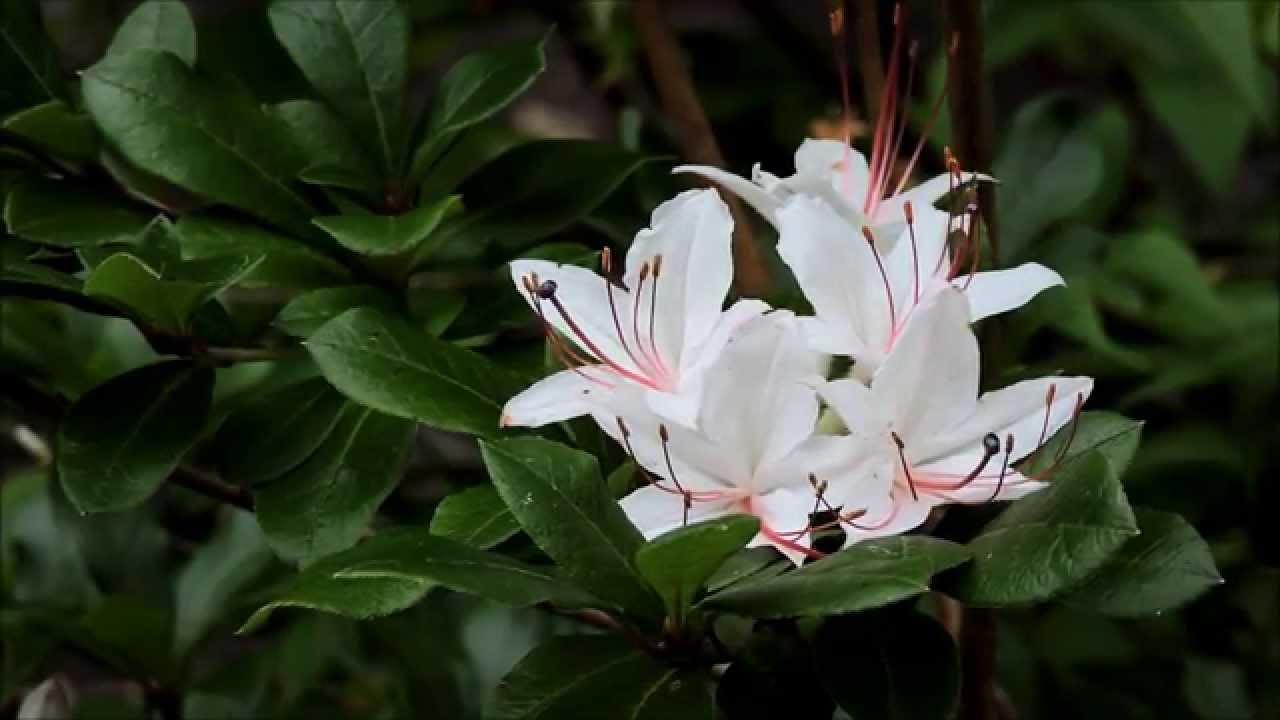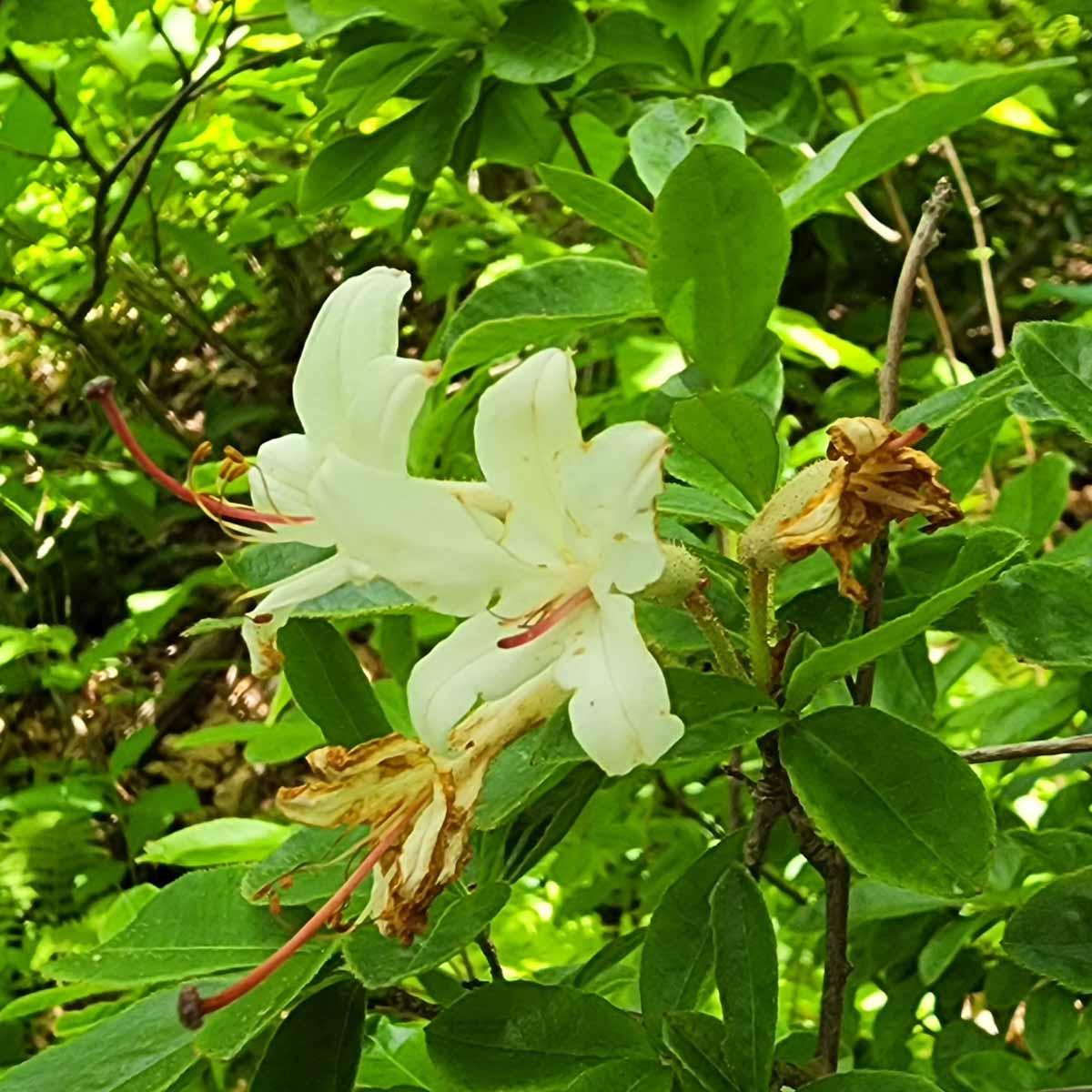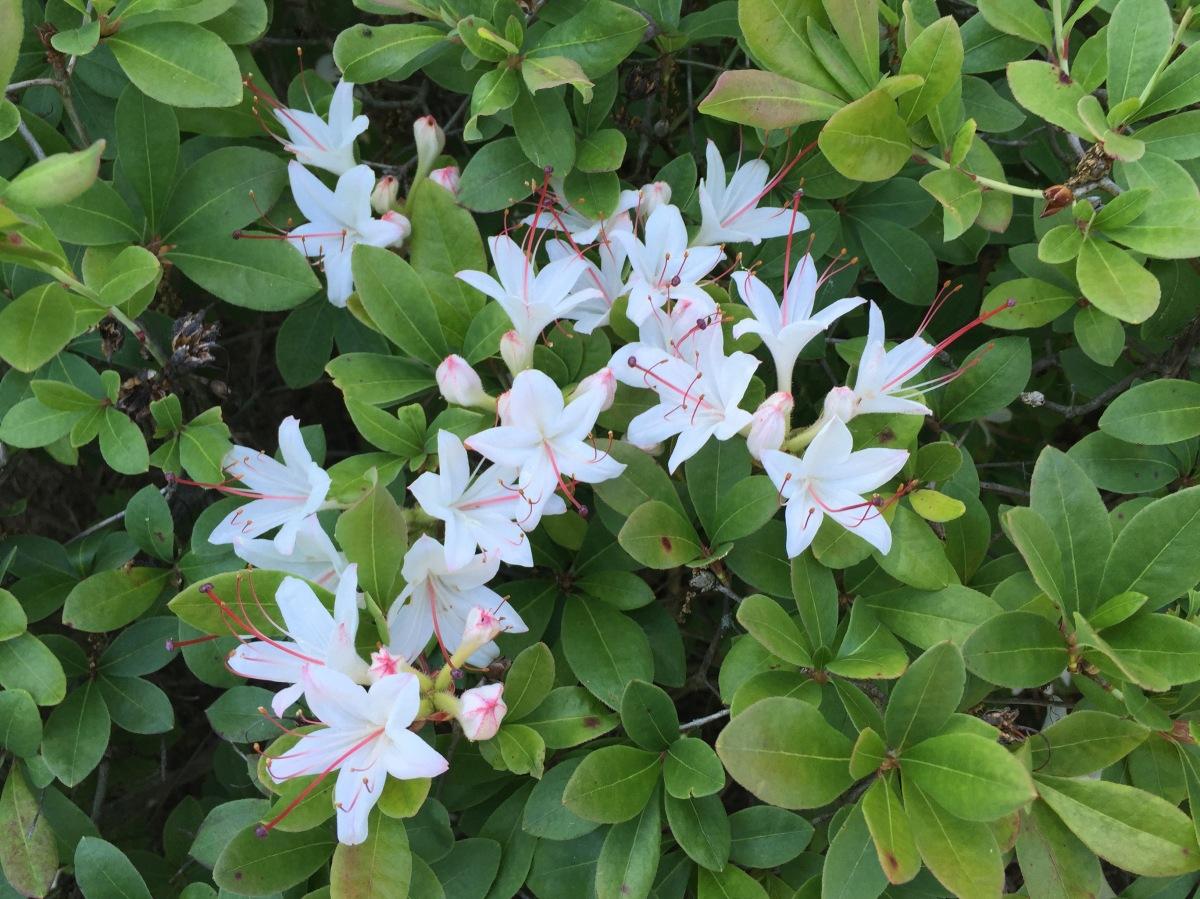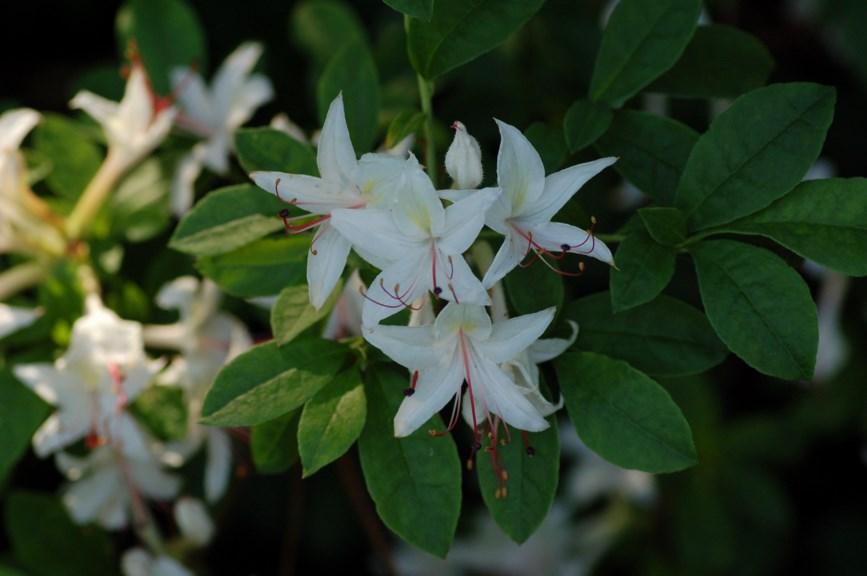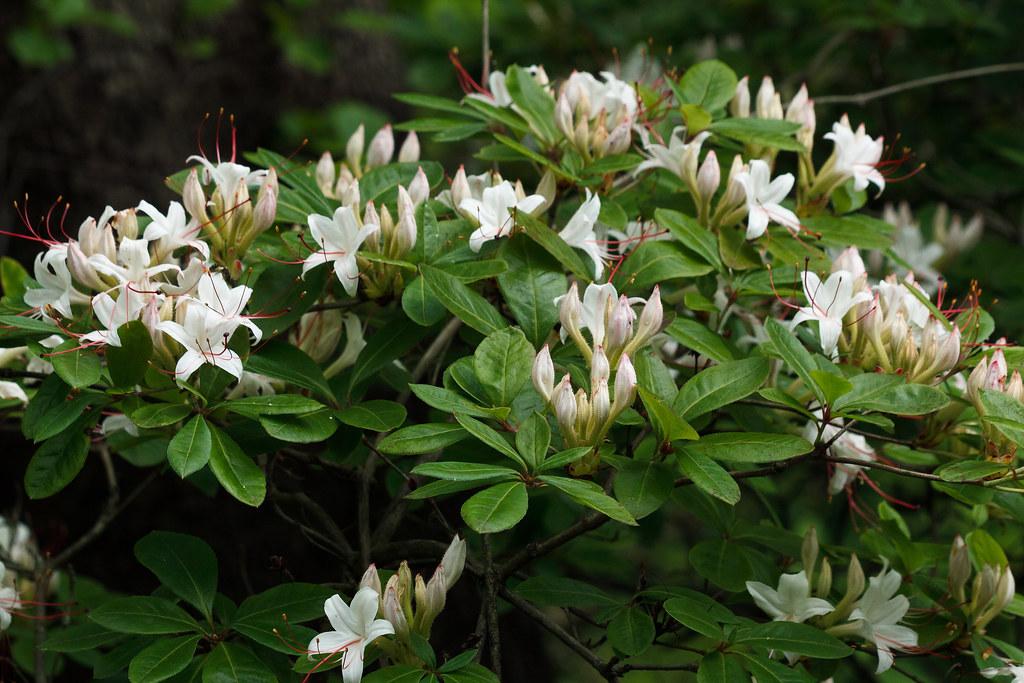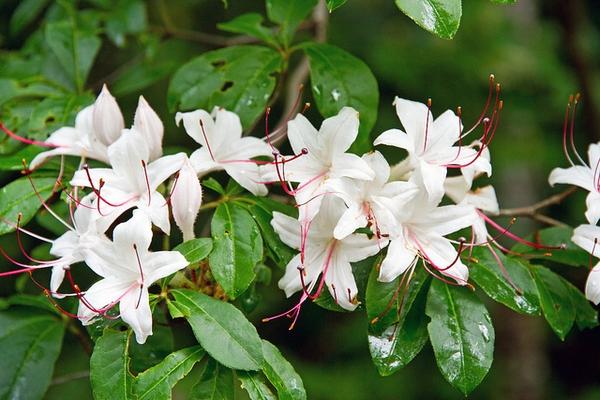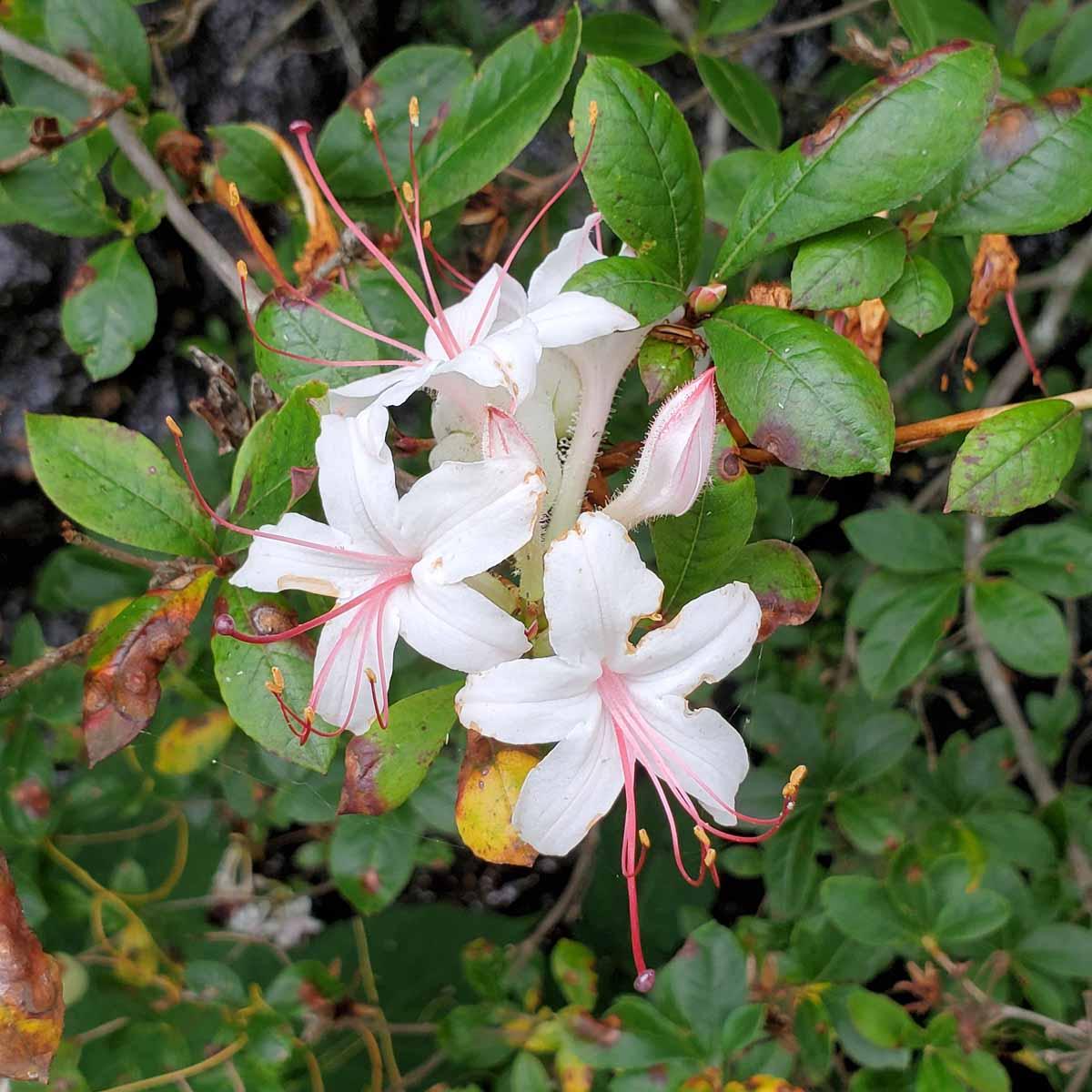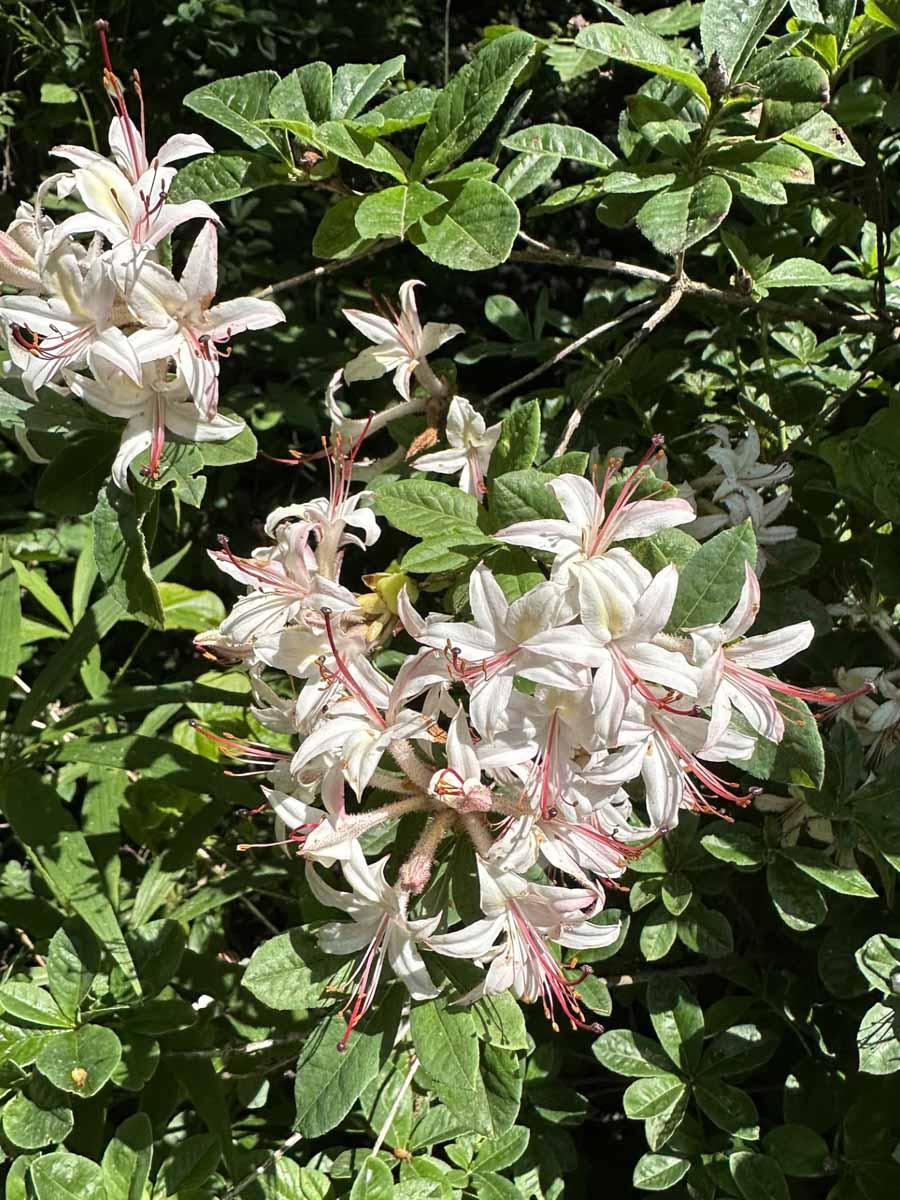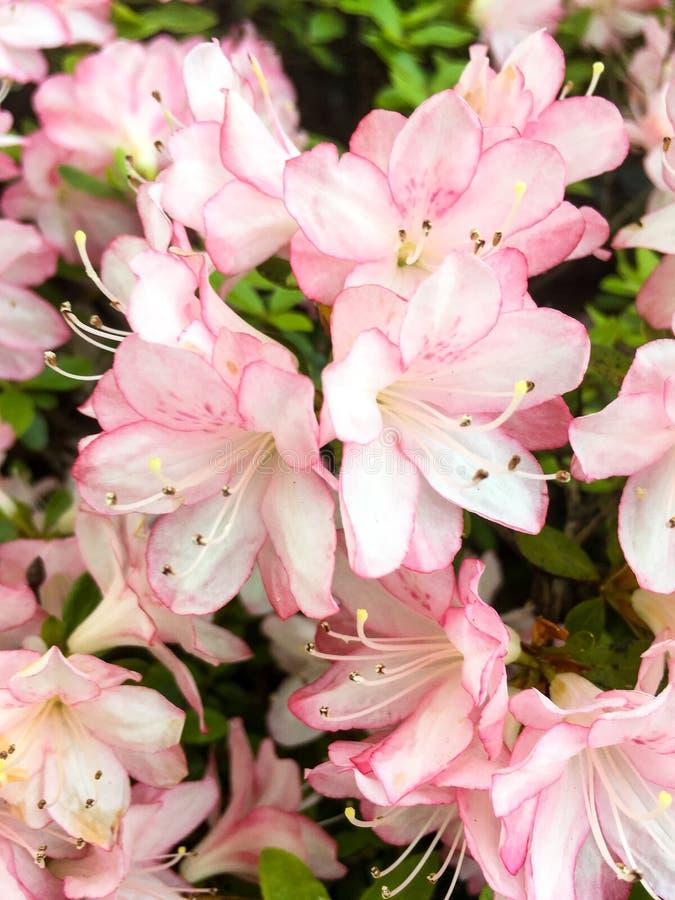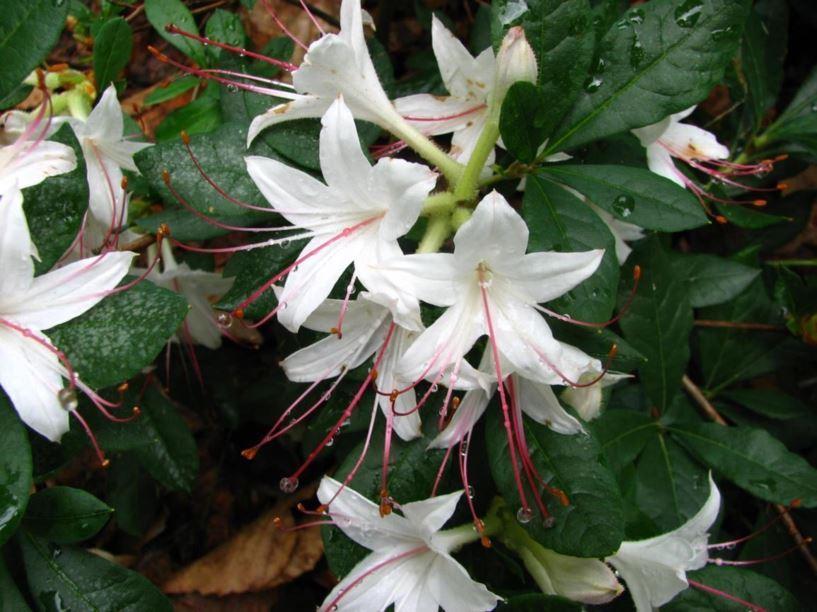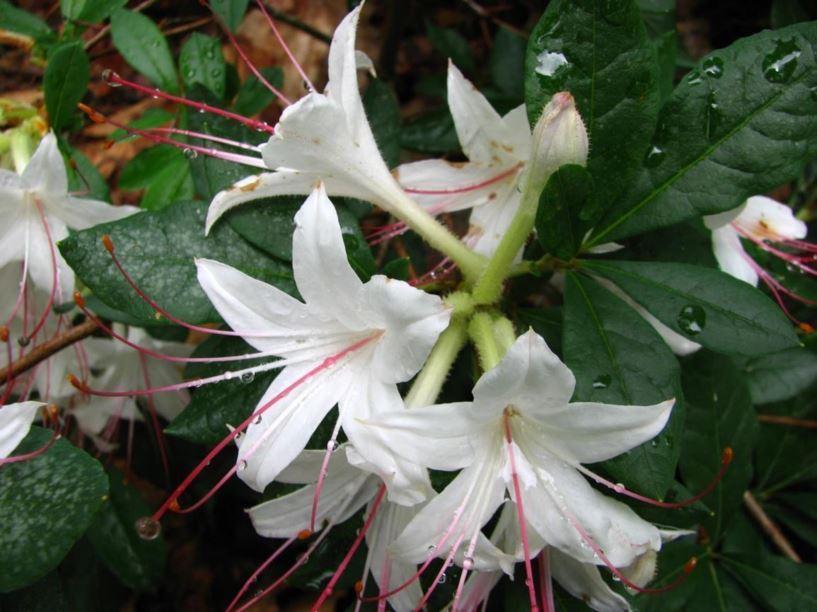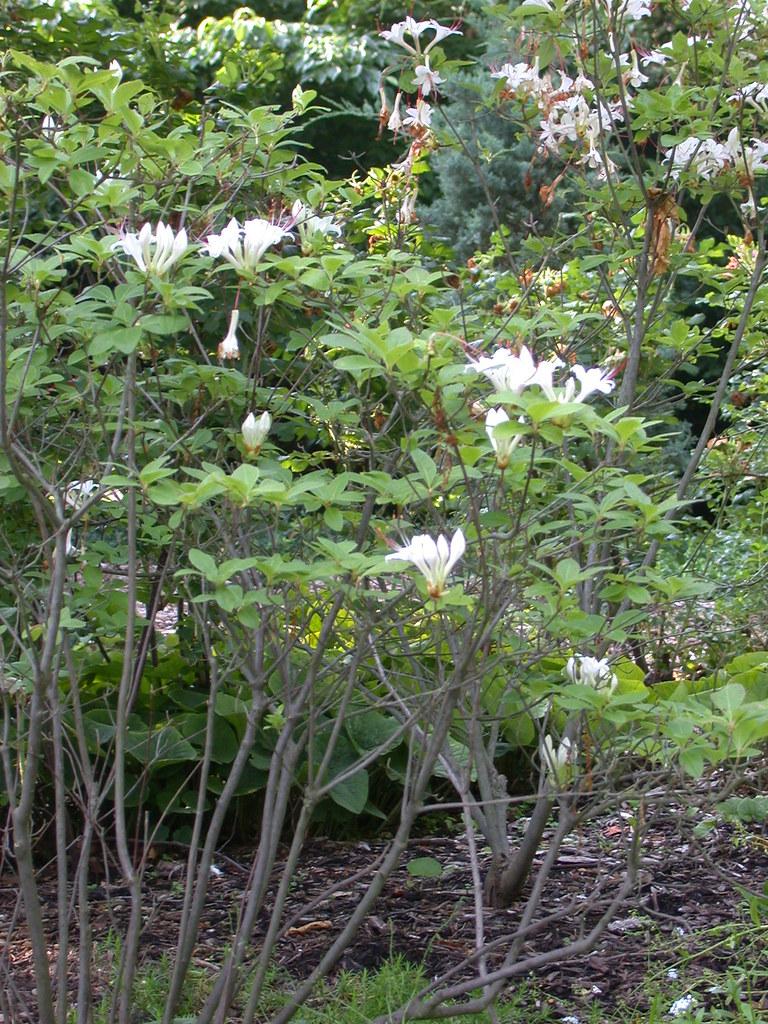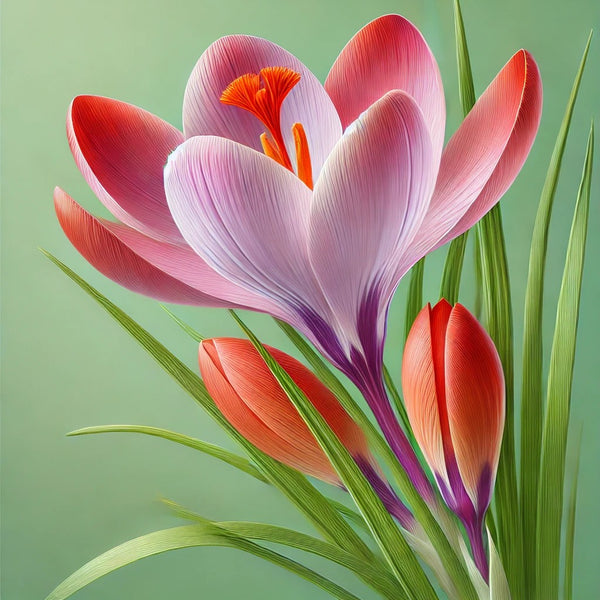1
/
of
18
Sweet Azalea-Azalea arborescens-Fragrant blooms 5 Gallon
Sweet Azalea-Azalea arborescens-Fragrant blooms 5 Gallon
Regular price
$380.00 USD
Regular price
$494.00 USD
Sale price
$380.00 USD
Unit price
/
per
Shipping calculated at checkout.
SKU:nsf8009-redcrocus
Couldn't load pickup availability
Azalea arborescens
Description
Azalea arborescens, commonly known as Sweet Azalea, is a deciduous shrub known for its fragrant white to pink flowers that bloom in late spring to early summer. It is native to the eastern United States and thrives in woodland environments.
Suggested Uses
Sweet Azalea is ideal for woodland gardens, naturalized areas, and as a part of mixed shrub borders. Its fragrant blooms make it a delightful addition to any garden setting.
Plant Details
-
 Botanical Name: Azalea arborescens
Botanical Name: Azalea arborescens -
 Common Name: Sweet Azalea
Common Name: Sweet Azalea -
 Size & Growth: Typically grows 6-8 feet tall and 4-6 feet wide
Size & Growth: Typically grows 6-8 feet tall and 4-6 feet wide -
 Hardiness Zones: 5-7
Hardiness Zones: 5-7 -
 Foliage Type: Deciduous
Foliage Type: Deciduous -
 Bloom Time: Late spring to early summer
Bloom Time: Late spring to early summer -
 Growth Rate: Moderate
Growth Rate: Moderate -
 Light Requirements: Partial shade to full sun
Light Requirements: Partial shade to full sun -
 Attracts Pollinators: Yes, attracts bees and butterflies
Attracts Pollinators: Yes, attracts bees and butterflies -
 Indoor Friendly: No
Indoor Friendly: No -
 Container Friendly: Yes, with adequate care
Container Friendly: Yes, with adequate care -
 Deer Resistant: No
Deer Resistant: No -
 Pet Warning: Toxic if ingested
Pet Warning: Toxic if ingested -
 Fragrant: Yes
Fragrant: Yes -
 Cut Flower: Yes
Cut Flower: Yes -
 Grows Well With: Ferns, Hostas, and other shade-loving plants
Grows Well With: Ferns, Hostas, and other shade-loving plants
Care Tips
-
 Planting Instructions: Plant in well-drained, acidic soil with organic matter
Planting Instructions: Plant in well-drained, acidic soil with organic matter -
 Soil Moisture: Keep soil consistently moist, but not waterlogged
Soil Moisture: Keep soil consistently moist, but not waterlogged -
 Soil Type: Acidic, humus-rich soil
Soil Type: Acidic, humus-rich soil -
 Humidity: Prefers moderate humidity
Humidity: Prefers moderate humidity -
 Pruning Instructions: Prune after flowering to maintain shape and remove dead wood
Pruning Instructions: Prune after flowering to maintain shape and remove dead wood -
 Winter Care: Mulch to protect roots in colder climates
Winter Care: Mulch to protect roots in colder climates -
 Planting Depth: Plant at the same depth as in the nursery pot
Planting Depth: Plant at the same depth as in the nursery pot -
 Fertilization: Fertilize in early spring with a slow-release, acid-loving plant fertilizer
Fertilization: Fertilize in early spring with a slow-release, acid-loving plant fertilizer -
 Special Care: Avoid planting in areas with poor drainage
Special Care: Avoid planting in areas with poor drainage
Share
